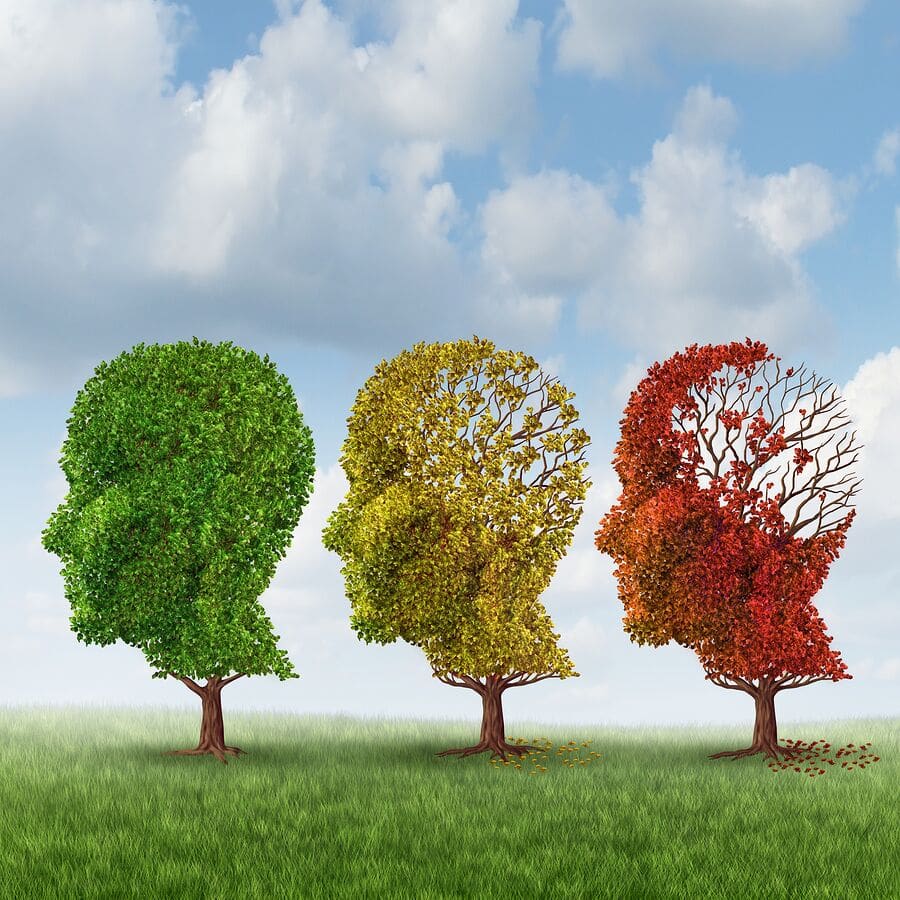There are many reasons an older adult may experience memory loss.
Seniors are often reluctant to talk to their doctor about memory loss, fearing a diagnosis of dementia or Alzheimer’s disease. However, depending on the specific cause, the condition may be treatable and the memory loss or confusion may improve.
Even if ultimately the memory loss is not reversible, an earlier diagnosis can make a big difference in how well the senior will fare over the next few years or decades. Studies show strong evidence that with an early diagnosis and the proper support, seniors diagnosed with irreversible dementia can live independently and successfully in their home for much longer than they could undiagnosed.

Reversible Causes of Memory Loss
It should never be assumed that forgetfulness or confusion in an older adult means that they have dementia. There are a number of other conditions that cause memory loss, many of which can be reversed with treatment.
-Depression
-Medication side effects
-Hearing loss
-Vision loss
-Sleep problems
-Long-term alcohol misuse
-Low levels of vitamin B-12, folic acid, or thiamine
-Thyroid disorder
-Calcium imbalance
-Infections
-Metabolic abnormalities
Talk with the doctor about any memory loss, changes in thinking or language abilities. Memory loss in seniors should be discussed with the doctor sooner than later, as difficult as it may be. Addressing it early affords the senior the best chance to avoid complications and, if needed, plan for the future and set up for success in the journey ahead.
Elderly Care can Help Seniors with Memory Loss
Elderly care aides can be extremely helpful for seniors with memory loss, whether it’s relatively mild or severe.
Seniors with dementia tend to thrive with routines, and having a familiar person come by at the same time each morning can help them set their day up for success. Ensuring that the senior is eating well and that any changes in appetite, health, or behavior are noticed early can make a big difference in preventing declines in health, cognition, and functioning. Keeping the senior with dementia engaged in meaningful activities likewise can keep them at their best for as long as possible.
Additional ways that elderly care services can help seniors with dementia thrive at home include:
- Keeping the house in a safe, sanitary condition
- Ensuring groceries are available and fresh meals are prepared
- Reminders and companionship for eating and drinking
- Routines and exercise which can support healthy sleep patterns
- Social and mental stimulation to keep the brain as sharp and engaged as possible
- Offering respite opportunities to family caregivers, to allow them opportunities to tend to their own care
Address Memory Loss Early for the Best Results
Although memory may fade naturally a bit with age, memory loss should not significantly impact an older adult’s ability to function in their daily life – if it does, it is due to a cause other than normal aging. The cause may be reversible with medication, food or lifestyle changes, or other treatment.
Even if the cause isn’t reversible, an early diagnosis sets a senior up to function higher and retain their independence longer than if they put it off. Most seniors and their families attest that, once the initial shock has worn off, understanding what has been wrong gives them a feeling of relief, and allows them to make appropriate plans for whatever may lie ahead.
If you or an aging loved-one are considering Elderly Care in Newport Beach CA, please contact the caring staff at Canaan Home Care today!
1-844-CANAAN-1 (1-844-226-2261)
Sources,
https://jamanetwork.com/
https://www.nia.nih.gov/
- Why Seniors Should Prioritize Foot Health - April 29, 2025
- Reduce Clutter and Reduce Stress This Spring - April 23, 2025
- Sight Issues Your Loved One With Alzheimer’s Disease May Experience - April 15, 2025




